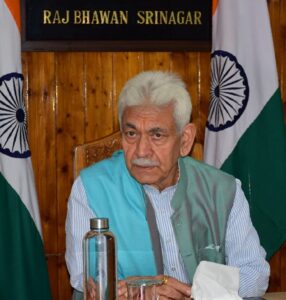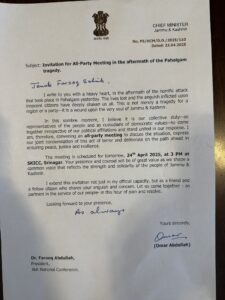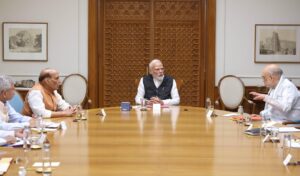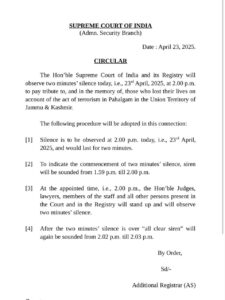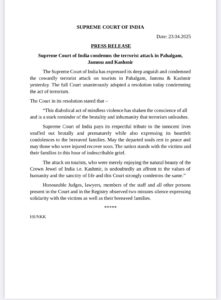EC reviews poll preparedness for assembly elections in Jharkhand; directs enforcement agencies to curb money power
Ranchi (Jharkhand) [India], September 24 (ANI): A delegation from the Election Commission of India, led by Chief Election Commissioner (CEC) Rajiv Kumar, conducted a thorough review of the poll preparedness for the upcoming Assembly Elections in Jharkhand at Ranchi, directing central and state enforcement agencies to curb the influence of money power.
CEC Rajiv Kumar was accompanied by Election Commissioners Gyanesh Kumar and Dr. S.S. Sandhu.
The term of the Jharkhand State Assembly is set to expire on January 5, 2025, with elections scheduled for 81 constituencies (44 General, 9 SC, 28 ST) across the state.
During the Commission’s two-day review visit on September 23-24, representatives from national and state political parties, including the Aam Aadmi Party, Bahujan Samaj Party, Bharatiya Janata Party, Communist Party of India (Marxist), Indian National Congress, National People’s Party, AJSU Party, Jharkhand Mukti Morcha, and Rashtriya Janta Dal, met with the Commission.
All political parties expressed their appreciation for the successful and peaceful conduct of the 2024 Lok Sabha Elections.
In a press release, the Election Commission noted that most parties had unanimously requested consideration of various festivals, such as Diwali, Chhath, Durga Puja, and the state foundation day in October and November, before finalising the election schedule, to enhance voter participation. Many voters are expected to travel during Chhath Puja.
“Several parties also requested a single-phase election, error-free electoral rolls, and the assurance of free and fair elections, with non-partisan action from the local civil and police administration to ensure a level playing field. They also recommended a proper mix of CAPF and state police at sensitive and rural booths, monitored by an IG-level officer,” the statement added.
Regarding polling stations, one party requested the availability of ramps and adequate lighting at all stations, as well as priority voting for the elderly, PwDs, and pregnant women.
“Polling stations should be set up close to residential areas for the convenience of voters. A pick-up and drop-off facility should be provided for polling stations located far from residential areas. An accessibility observer should be deployed to ensure adequate facilities at polling stations. One party raised concerns about cases where members of the same family, living together, were assigned different polling stations, and some polling stations have more than 1,500 electors,” the Election Commission added.
The Commission stressed the need for strict vigilance and action against the use of illicit cash, liquor, and freebies to sway voters.
“There was also a grievance that the administration is slow to cooperate with opposition parties’ or candidates’ complaints, and there is a need for swift action on such complaints,” the Commission said.
The Election Commission assured representatives that it had taken note of their suggestions and concerns and reaffirmed its commitment to conducting free, fair, participative, inclusive, peaceful, and inducement-free elections in the state.
During its meeting with nearly 20 central and state enforcement agencies, such as the DRI, NCB, State and Central GST, RPF, RBI, State Police, Income Tax, and the Enforcement Directorate, the Commission underscored its focus on ensuring an inducement-free election.
Without mincing words, the Commission conveyed its zero tolerance for the use of money power in the elections.
However, CEC Rajiv Kumar also cautioned officials to avoid undue harassment of the public in the name of election checks.
The Commission also met with the Chief Secretary and Director General of Police to review overall poll preparedness and law and order. The Chief Secretary was instructed to ensure the presence of all Assured Minimum Facilities (AMF) at polling stations, while the DGP was directed to hold regular coordination meetings with counterparts in neighbouring states.
Jharkhand shares long borders with five states–Bihar, Uttar Pradesh, Odisha, West Bengal, and Chhattisgarh. CEC Rajiv Kumar emphasised that the implementation of laws and ECI guidelines must be carried out impartially.
On the second day, the Commission held detailed reviews with DEOs, SPs, Divisional Commissioners, and IGs regarding every aspect of election planning and execution.
CEC Rajiv Kumar stressed the need for DEOs and SPs to ensure free and fair elections by maintaining the highest standards of impartiality. He urged district administrations to create a festive and comfortable voting experience for voters.
DEOs were encouraged to engage voters through innovative voter awareness and outreach activities to boost turnout. The Commissioner recommended organising SVEEP activities incorporating local culture and sports, such as archery and hockey.
“Painting competitions featuring local tribal themes can be organised. Local influencers or icons should be involved in awareness activities. DEOs should intensify outreach efforts in urban areas like Bokaro, Dhanbad, and Ranchi, where urban apathy was noted in previous elections. All DEOs and SPs were also instructed to monitor social media for fake news and to take swift legal action when necessary,” the statement concluded.
In the 2020 Assembly elections, JMM won 30 seats, BJP secured 25, and Congress took 16.

